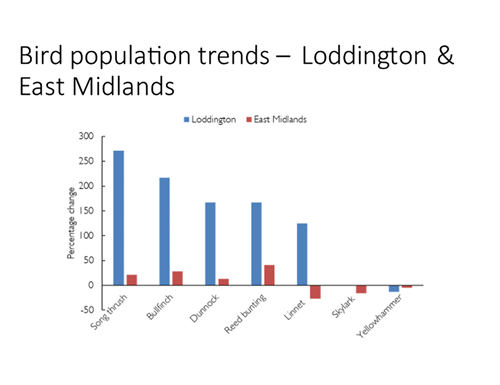Below is a letter we received from the RSPB last week regarding their new policy position in relation to released game management. Our response is published underneath.
Dear Teresa and Jim,
I hope this finds you both well.
I’m just writing to bring you up to speed on an announcement we will be making at our AGM later this week.
As you know, in 2020 the RSPB set out that in the current nature crisis, it is imperative to reduce the negative impacts of the release of non-native gamebirds . And, given the urgency of the crisis, we said we would call for stronger regulation if there was no significant progress, initially within 18 months, and latterly by October 2022.
Having now completed this assessment, we have seen little progress (albeit that gamebird numbers released this year have gone down due to avian flu and resultant problems importing birds from France). There is a high degree of agreement between shooting and conservation organisations on what would constitute sustainable practices, but overall, there is a lack of evidence to show that this guidance is being followed and hence a lack of evidence for a reduction in negative impacts from gamebird releases.
Our concern is about large-scale shoots, and not small-scale farm shoots, where there is often a net benefit for native wildlife.
Given this lack of progress towards a more sustainable gamebird shooting industry over decades and minimal signs of positive change for the future, we have concluded that further regulation and better enforcement of existing rules will be required to deliver the changes necessary in the face of a nature and climate crisis.
This view is reinforced by evidence from other sectors on the widespread failure of voluntary approaches to deliver positive environmental change and is in line with the recommendations of a recent UN report, which recommended enhanced powers for authorities to use revokable licences for gamebird shooting where raptor persecution occurs. While there is still work to do on the detail of how additional regulation and enforcement can be used most effectively to deliver the changes we need to see, the direction of travel is clear.
This change in our policy will be announced at our 2022 AGM this Saturday, but we wanted to ensure you had advance sight of the announcement.
With best wishes,
Beccy
Beccy Speight
Chief Executive
On receipt of this letter, our GWCT Chief Executive, Teresa Dent, penned the following response highlighting the science and initiatives to the contrary of the above statements from the RSPB:
Dear Beccy,
Thank you for providing me with RSPB’s new policy position in relation to released game management. I am deeply concerned that your main message continues to be that gamebird releasing has negative impacts. This is despite having my letter to you dated 25th November 2020, Roger Draycott’s several meetings with your senior research and policy team since, and your own statement that shooting can deliver “a net benefit for native wildlife”.
Additionally, you and Kevin Cox kindly visited GWCT’s Allerton Project (our research and demonstration farm) only a few months ago and we showed you that we had scientifically proved that game management associated with released pheasants on this ordinary farm resulted in a doubling of farmland bird numbers. We now have some additional data below that compares the trend in species numbers of some farmland birds at Allerton with regional averages:

[NB: BAP species for which data are available. Loddington – 1992 baseline compared with 2021 territory mapping data. East Midlands – 1995 – 2018 BTO Breeding Bird Survey data]
We are also surprised that you have an issue with large-scale, but not small-scale shoots. The science shows that size of shoot is not a critical factor in terms of biodiversity delivery. All shoots, large or small can deliver significant biodiversity gains when they follow best practice guidelines. Roger will have shared with your team the evidence that large-scale shoots in the south-west of England hold much higher densities of farmland birds than neighbouring farms with no game shoots.
Contrary to the claim that “there is a lack of evidence to show that this guidance is being followed” there are no indications of widespread flouting of releasing guidelines. Furthermore, it would be helpful to understand how you expect to measure progress to sustainability. As far as I am aware you have no basis to measure whether it is improving or otherwise apart from GWCT data on numbers of gamebirds released and, as you say, those have gone down in recent years due to a combination of covid and Avian influenza.
Roger also briefed your team on the wide range of initiatives that the game management sector has in place to deliver best practice and net biodiversity gain. These include an online shoot biodiversity calculator launched by GWCT this summer to help shoots assess levels of biodiversity delivery. Early indications highlight that the majority are delivering a net biodiversity gain and complying with sustainable releasing guidelines.
The GWCT acknowledges there is always room for improvement. We continue to help raise standards within the game management community. In our view, it would be preferable if the RSPB were to promote such initiatives and GWCT’s Principles of Sustainable Game Management rather than reach for the heavy and expensive hand of regulation.
The RSPB’s refusal to acknowledge the weight of evidence showing that sustainable game management has significant positive impact on wildlife and the wider countryside, coupled with your continuing focus on potential negative rather than the proven positive impacts on biodiversity is not, we feel, in the interests of conservation. Moreover, I fear that this position will further alienate working conservationists from the RSPB.
Yours sincerely,

Mrs. Teresa Dent CBE, GWCT Chief Executive